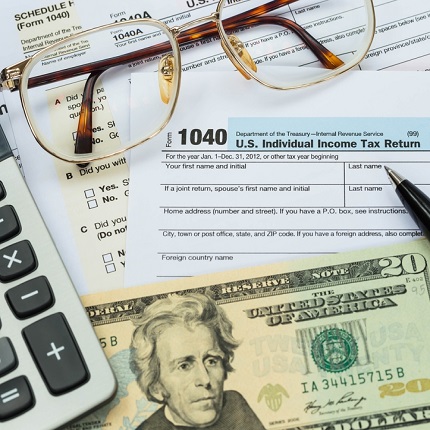Filed A Federal Tax Extension? Seven Money Must-Dos Before October 15
 With a packed social calendar of game day parties, pumpkin spice everything and all things autumn on the brain, April is probably a blip in your rearview mirror.
With a packed social calendar of game day parties, pumpkin spice everything and all things autumn on the brain, April is probably a blip in your rearview mirror.
But if you filed for a federal personal tax extension on Tax Day, listen up: October 15 marks the deadline to finally get all of your paperwork in to the I.R.S.
To help those preparing for the October date, here’s a handy rundown of things to check off your gotta-meet-the-tax-extension-deadline to-do list.
1. Note The Filing Deadline
Your 2014 tax return must be postmarked by October 15 if you’re using snail mail, or e-filed by midnight on October 15 if you’re submitting electronically. You can use your tax preparation software program to file, or Free File to do it online at no cost.
2. Check That Your Accountant Has All Your Paperwork
If you still owe your tax preparer any critical tax documents, deliver them—ASAP. It’s truly the most important thing you can do, says Clarence Kehoe, CPA and executive partner at New York-based accounting firm Anchin, Block & Anchin.
“Unless you have unusual circumstances, such as late filing of partnerships or Subchapter S corporations that you participate in, all of your final tax information should have been supplied to you already,” Kehoe says.
3. Find Out If You’re Eligible For A SEP IRA To Help Reduce Taxable Income
April 15 was the deadline for most tax-deductible contributions to retirement savings plans for the 2014 tax year. So while there’s little that you can do now to affect your 2014 tax liability, one exception is to consider setting up and contributing to a Simplified Employee Pension, often referred to as a SEP IRA—if you’re eligible.
“In order to qualify for a SEP, a taxpayer must have eligible self-employment income,” Kehoe says. “A SEP is a rarity in that you can put the legal paperwork in place and make the contribution by the tax extension due date on your return, and still have the deduction count towards the prior year.”
Just be sure to consult your tax adviser on whether your personal situation qualifies you for a SEP IRA.
4. Review Potential Deductions You May Have Missed
If you’re filing at the last minute, you may be in such a hurry to get the return done that you overlook small things that could potentially reduce your tax bill. So make it a point to review your charitable contributions, child care expenses, Social Security income, bank interest income and tuition deductions or education credits.
And don’t forget about any retirement plan distributions. For instance, if you changed jobs, you may have received a distribution from the company 401(k) and simply forgotten about it.
“It happens every year,” says Rayanne Buchianico, an enrolled agent and tax preparer in Dunedin, Fla. “If you have W-2s from two different employers, ask yourself what happened to the retirement plan money, if there was any.”
5. Take Care Of Any Outstanding Payments
You should have already paid your estimated 2014 tax bill when you filed for an extension, but if you didn’t, be ready to pay up now—including any applicable interest or penalty charges. If you are unable to pay your tax bill in full and you owe less than $50,000, you can apply for an online payment plan or installment agreement with the I.R.S.
6. Don’t Wait Until The Last Possible Second To File
Try to avoid filing your return at 11:55 p.m. on October 15. We’ve all experienced technical malfunctions, so don’t risk filing your return late—and possibly accruing late-payment penalties on your tax bill.
7. Start Getting Organized For Next Year
Sometimes tax extensions are necessary and beyond the taxpayer’s control. But if your reasons for filing for a tax extension were avoidable, make a commitment to do what it takes to be ready to file on time in April next year.
Consider creating a dedicated file for next year’s tax documents, so everything is organized in one place—and always accessible.
Now is also a good time to make sure you’re contributing enough to your 2015 taxes, so check with your employer to verify your current exemptions. And if you’re self-employed, review your income and estimated tax payments with an accountant.
“By being better organized as events occur—instead of looking at things after the fact, when it can be more difficult to recall financial details—you will be better prepared psychologically to deal with your taxes, rather than doing as many do—avoiding the inevitable until the last minute,” Kehoe says.
Source: Forbes

